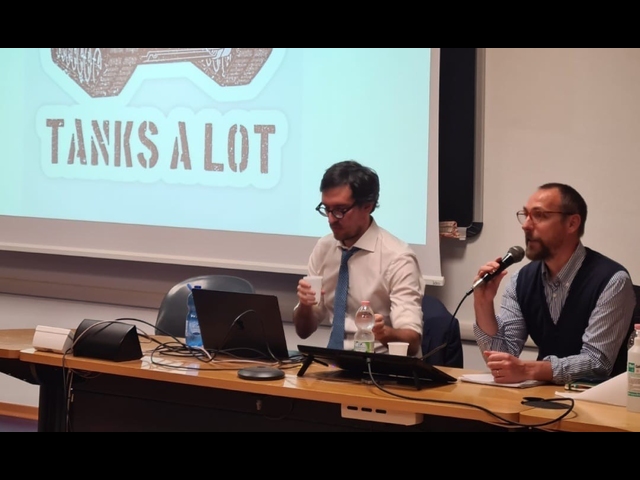
(ANSA) - UDINE, 16 APR - "The Russian-Ukrainian conflict has brought NATO back to its main mission, which is deterrence and defense, while since the end of the Cold War NATO had focused on other missions, conflict management, and cooperative security, today its priority is territorial security; while it has less importance what does not directly threaten its existence and that of its allies." That is part of the speech given by Andrea Gilli, visiting fellow of the Istituto Affari Internazionali, researcher, and consultant in the field of defense, speaking today at the conference "NATO: deterrence and defense after Ukraine," organized by IAI and the University of Trieste and moderated by Federico Donelli, professor of International Relations at the University of Trieste. "The relevance of NATO after the Russian attack on Ukraine is there for all to see," Donelli said, introducing the talk in front of about 100 students, "and this has triggered an international debate about what NATO should be, but there are also questions about whether the European countries will be able to develop a collateral defense apparatus or whether it will make more sense to strengthen the European position within the Atlantic alliance." Speaking about how the Russian-Ukrainian conflict has altered world balances, Gilli pointed out that the war "has forced all the countries of the world to take a position: in Western countries, there has been a convergence of the pro-Ukrainian and anti-Russian front, but in the South in the world it is much more ambivalent. Indeed, many South American and Middle Eastern countries have more pro-Russian than pro-Ukrainian stances." "This is relevant," Gilli added, "because Russia continues cooperating with China, which needs raw materials that some of these countries produce. So we could be going in the direction of a fragmentation of the international order, also from the trade point of view." The expert went on to point out that "this high-intensity war, which we have not seen for a long time, has resulted at the industrial level in the need to have an industry that can produce at a high rate." Other consequences have occurred at the military level. "The spread of both drones and anti-aircraft defenses has made ground and air forces more vulnerable," Gilli explained. "Also, there has been an initial integration from AI at the combat management level - he added - to assign targets to fire capabilities. Then, using long-range artillery changed the traditional way of fighting because it made the battlefield more and more lethal." (ANSA).
